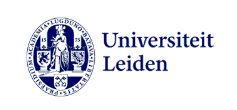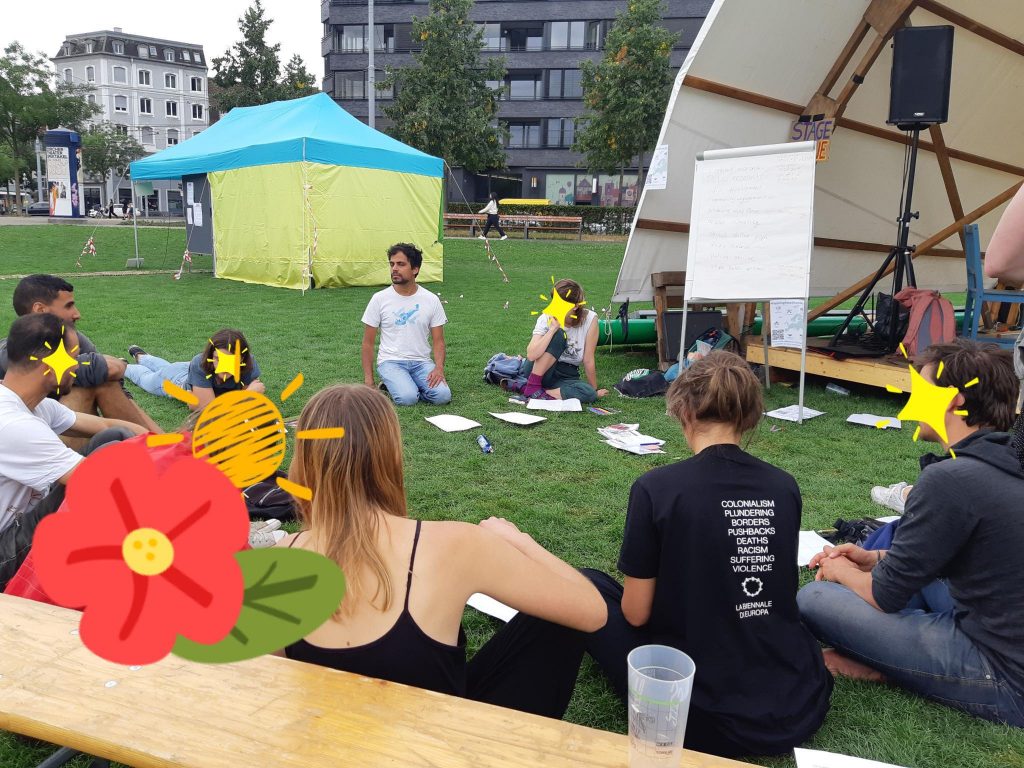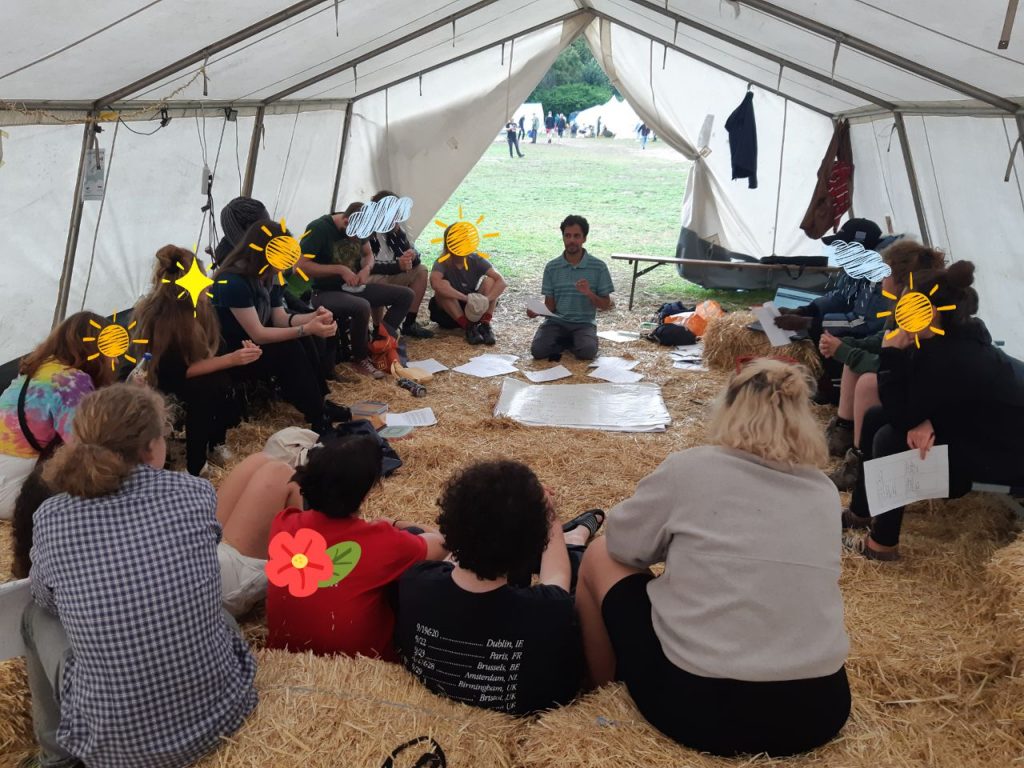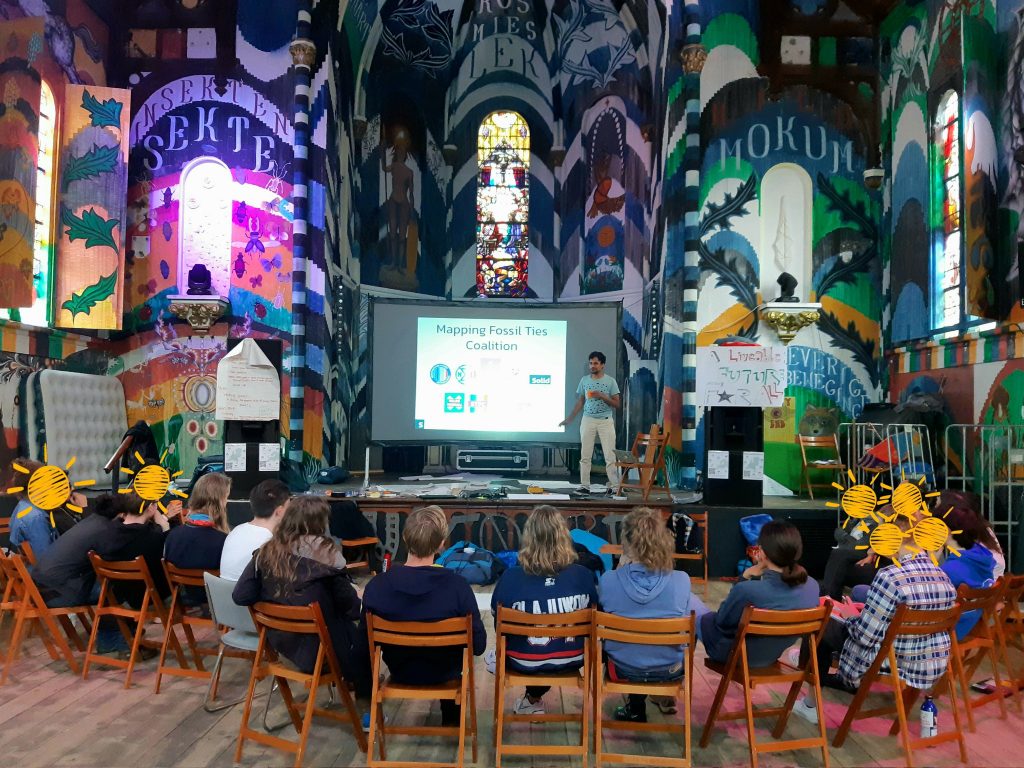In August and September, we gave several workshops and facilitated conversation circles around universities’ relationships with the fossil industry (“fossil ties”). Our workshops centered around how to map fossil ties at one’s university effectively and efficiently.
Our conversation circles begin with a discussion about the role of a university in society, and why working with universities is interesting to fossil fuel companies. In smaller groups, participants think through case studies based on real-life scenarios, for example: What if you are a researcher on a tenure track and are offered funding for your research project by a fossil fuel company? What are the benefits and risks of accepting or rejecting the money, and could there be alternatives? We ground the discussion in reality by looking at examples of fossil fuel industry influence at universities.

22 September 2023: We were invited to lead a conversation circle at the yearly opening of the Humanities Lab honours program at Leiden University, which has the theme ‘Environmental Humanities’. Among other insights, students proposed that there shouldn’t be a non-democratic party with a lot of power that can determine research directions, and that a solution could be a pool of money that external parties contribute to instead of funding projects directly.
We think this conversation circle gave the students a good preparation to participate in the debate about Leiden University’s fossil ties taking place on the 27th of August with students and staff.

9 August 2023: Our conversation circle at the No Borders Climate Camp in Basel also discussed ties to the military and border control – the subject of work by Mark Akkerman (Stop Wapenhandel and TNI). We learned that in Germany, several universities voluntary commit to engage exclusively in civil (i.e. non-military) research (‘Zivilklausel’). Could this be extended to include other industries as well?

5 August 2023: We led a conversation circle on ties between universities and the fossil industry at the System Change Camp in Hannover, Germany. We learned from African activists that the context around fossil collaborations matters for the decisions that one would take: for example, if you live in low-income country and a fossil company offers you a bursary, then of course you would accept since it provides you with good opportunities. In high-income countries, you have the privilege to deny such funding and still be able to make a living for yourself in a different way.

1 August 2023: We presented our new handbook for researching fossil ties to an international audience at the End Fossil congress. In our workshop, activists from Germany, the UK, Uganda, Czech Republic, and the Netherlands researched and analysed university fossil ties.
The night before, we played our pubquiz “Was it Shell or Mother Theresa?”, where groups had to quess who said a particular quote. The winners received posters of ‘Discourses of Climate Delay’ by Léonard
Chemineau, based on a publication of researchers of Cambridge University.